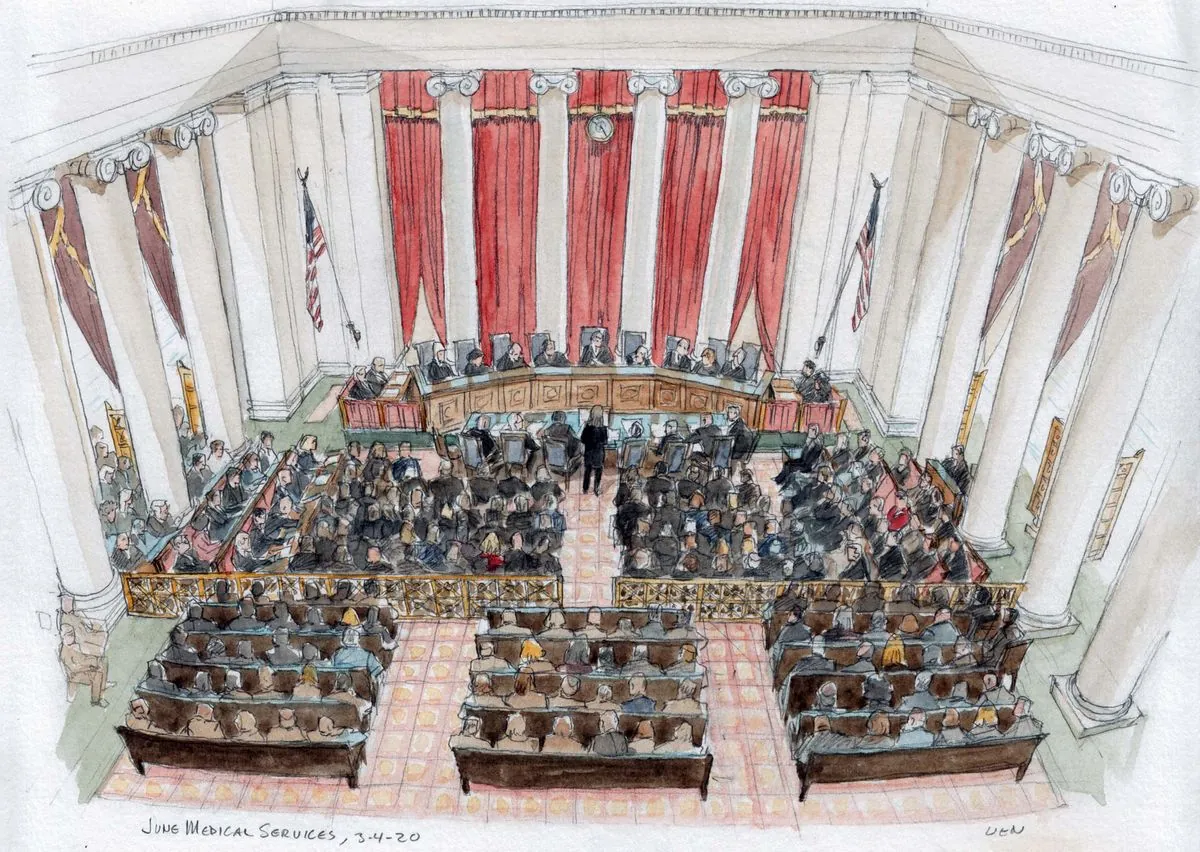U.S. Supreme Court Faces Scrutiny as New Term Begins with Major Cases
The U.S. Supreme Court starts its new term amid controversies and significant cases. Justices confront issues ranging from "ghost guns" to potential election disputes, reflecting deepening national divisions.

The U.S. Supreme Court commenced its new term on October 2, 2024, facing a docket filled with consequential cases and ongoing scrutiny. The nation's highest judicial body, established in 1789, finds itself at the center of public attention as it prepares to address issues ranging from firearms regulation to transgender rights.
The court's conservative majority, currently standing at 6-3, continues to shape American law in a rightward direction across various domains. This ideological balance, a result of recent appointments, has led to significant rulings that have altered the legal landscape of the United States.
One of the first major cases on the docket involves the regulation of "ghost guns" - firearms that are largely untraceable and can be assembled at home. The justices will hear arguments on October 3, 2024, regarding a 2022 regulation aimed at curbing these weapons, which law enforcement agencies report are frequently used in criminal activities.

The court is also set to address other contentious issues, including:
- A challenge to Tennessee's ban on gender-affirming care for transgender minors
- An appeal against Texas's law requiring age verification for pornographic websites
- The FDA's rejection of flavored vape product applications
These cases reflect the diverse and complex legal challenges facing American society, mirroring the deep divisions within the nation itself.
The court's internal dynamics have come under increased scrutiny, with reports of ethical concerns and information leaks. In September 2024, the New York Times published details from internal memos, raising questions about confidentiality within the institution. This incident followed the controversial leak of a draft opinion in 2022, which preceded the overturning of Roe v. Wade.
Justice Ketanji Brown Jackson expressed concern about the court's direction in a CBS interview in August 2024, particularly regarding the ruling on presidential immunity. This public airing of differences among justices is unusual and indicative of the tensions within the court.
"I was concerned about a system that appeared to provide immunity for one individual under one set of circumstances, when we have a criminal justice system that had ordinarily treated everyone the same."
The court's ethical standards have also been called into question. Media reports have highlighted instances where justices, notably conservatives Clarence Thomas and Samuel Alito, failed to disclose private jet travel and other gifts from wealthy benefactors. In response to criticism, the court introduced its first code of conduct in late 2023, though it lacks an enforcement mechanism.
As the court navigates these challenges, it may also face the prospect of adjudicating disputes arising from the November 5, 2024, presidential election. The specter of the 2020 election and its aftermath looms large, with the court potentially playing a crucial role in resolving any legal challenges.
The Supreme Court's decisions have far-reaching implications for American society. Its rulings can only be overturned by a constitutional amendment or a future court decision, underscoring the significance of each term's outcomes. As the justices deliberate on cases that will shape the nation's future, they do so under intense public scrutiny and amidst calls for reform.
President Biden proposed 18-year term limits for justices in July 2024, along with a binding code of conduct. However, these reforms face significant opposition from Republicans, highlighting the political dimensions of court reform efforts.
As the term progresses, the Supreme Court will continue to grapple with its role in a divided nation, balancing its constitutional responsibilities with the need to maintain public trust and institutional integrity. The outcomes of this term's cases will undoubtedly have lasting impacts on American law and society, further cementing the court's central role in shaping the nation's future.


































